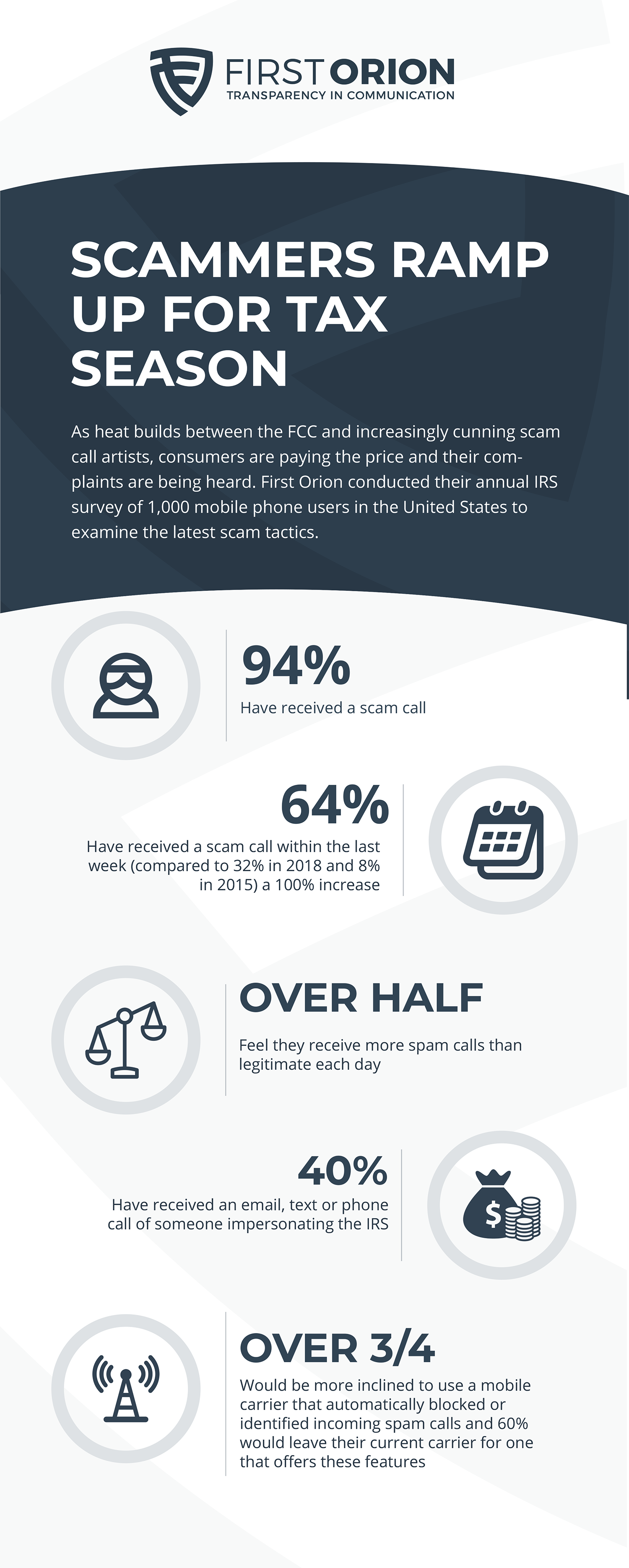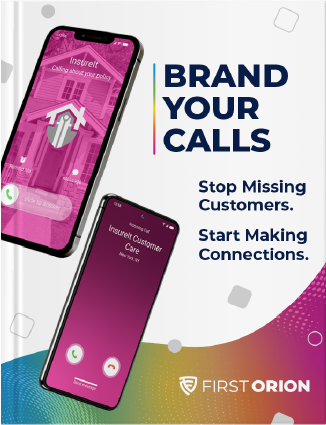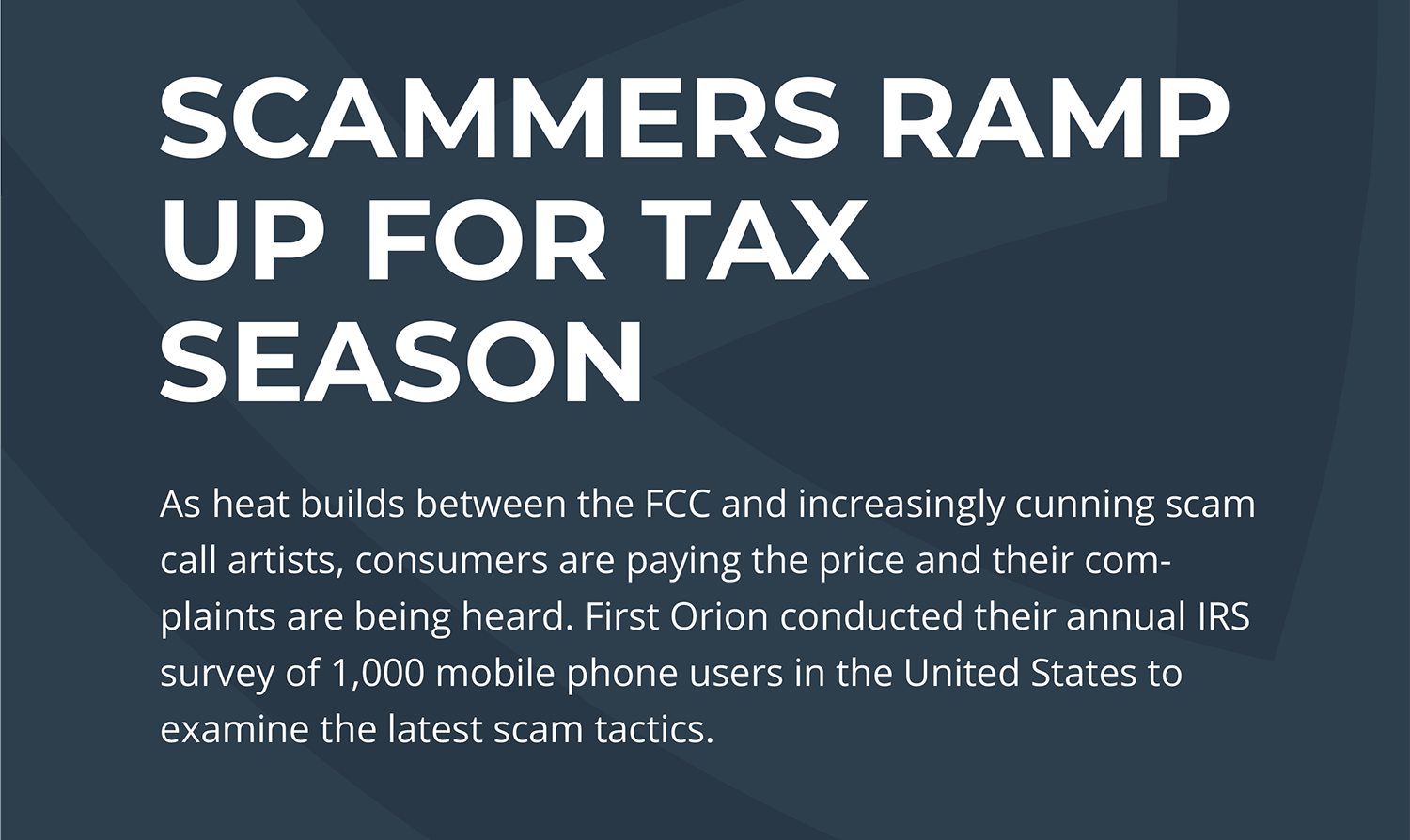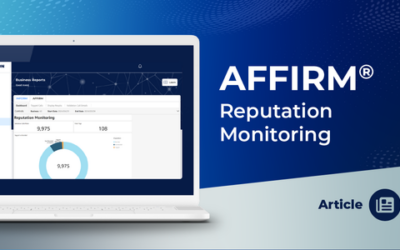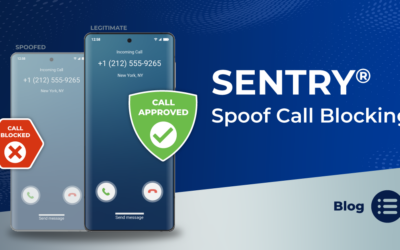Almost Two-Thirds of those Surveyed Received a Scam Call in the Last Week
First Orion today released the results of their annual IRS consumer survey, confirming some alarming trends regarding rapid increases in scam call frequency over the last few years. First Orion’s recent analysis of 50 billion calls made to U.S. consumers predicts nearly half of all calls will be fraudulent this year unless the industry adopts and implements more effective call protection solutions.
As heat builds between the FCC and increasingly cunning scam call artists, consumers are paying the price and their complaints are being heard. First Orion conducted their annual IRS survey of 1,000 mobile phone users in the United States to examine the latest scam tactics.
This year, 94% of mobile cell phone users reported they have received a scam call, reinforcing the universal nature of this communications epidemic. As the deadline to file taxes approaches, scammers are using this opportunity to take advantage of consumers. First Orion found that 40% of those surveyed have received an email, text or phone call of someone impersonating the IRS.
Fraudsters are getting more aggressive with their tactics by increasing the number of outbound calls. According to the survey, 64% have received a scam call within the last week – a 100% increase from the same survey last year. When weighing in the fact that only 8% of mobile users had been recently exposed to fraud in a survey by First Orion in 2015, these values reveal that the frequency of scam calls is growing exponentially every year. Unsurprisingly, over half (53%) of those surveyed feel they receive more spam calls than legitimate ones each day and two-thirds are unlikely to answer an incoming call from a number not saved in their address book.
While it may seem easy to differentiate between a scam and a legitimate call, this is not always the case. In fact, the infamous Chinese Embassy robocall scam raked in close to $40 million dollars – averaging $164,000 per victim – according to the FBI. First Orion’s survey found 2.9% of those surveyed gave away their social security number to a scammer over the phone – twice as many as last year – and 2.6% gave away their credit card number.
Consumers are getting more spam calls than ever and as this continues to climb they are looking to their carriers to solve the problem. Over three-quarters, (77%) of those surveyed would be more inclined to use a mobile carrier that automatically blocked or identified incoming spam calls and 60% would leave their current carrier for one that offers these features. After working closely with several carriers, First Orion found that in-network solutions that leverage sophisticated data analysis and machine learning are by far the most accurate way to pinpoint the origin of a call and identify it before it reaches your phone. First Orion’s highly innovative CallPrinting™ solution provides real-time decisions on incoming calls, intelligent analysis of phone call and network-wide data and an adaptable machine-learning based framework to stop the “next” scammer and spoofing tactic.
Other interesting facts:
- Bank and credit card scams were the most popular, 19.7% of those surveyed said this was the last scam call they received
- Almost a quarter (24%) of respondents have received over 50 scam calls over in the past 6 months
- 8% of those surveyed have experienced a financial loss from a scam call
- 40% are willing to pay monthly for a service that identifies callers, blocks nuisance and fraudulent calls as well as tell you why they are calling
